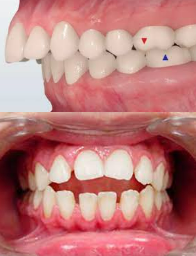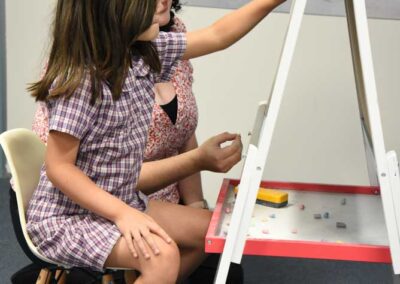Are you concerned with your child’s thumb sucking behaviour?
Thumb sucking is a normal part of early child development. Infants have a strong & predetermined sucking reflex and it’s not uncommon to see an infant suck their thumb in the womb. Hormones (endorphins, dopamine & serotonin) are released when an infant / toddler sucks their thumb giving them pleasure and comfort, enabling them to soothe themselves and keep calm.

When should my child stop thumb sucking?
Thumb sucking is normal and healthy in young children but can cause problems if it continues for too long. Most child stop sucking their thumbs between the ages of 2 –4 years.
Why is thumb/finger sucking for too long a problem?
Long-term habitual thumb or finger sucking can lead to changes in the development of the teeth and jaw. The younger a child stops this oral habit the less likely there will be any structural changes.
Long-term thumb / finger sucking can lead to:


- Changes in the development of the roof oft he mouth (palate) – when the tongue is constantly down and forward instead of resting on the palate, the palate can become narrow and reduce the amount of space available for the teeth to grow.
- An overjet (buck teeth) – the front teeth re pushed further forward than they should be. This can change the shape of the face.
- An open bite – the top and bottom front teeth don’t meet when the mouth is closed.
- A tongue thrust – the tongue comes forward during swallowing rather than in a backward motion as is expected in the correct, mature swallow.
- A lisp – the forward tongue position is seen when a child is talking and the /s/, /z/ and other sounds are produced with the tongue between the teeth or up against the front teeth.
- Oral infection – if a child does not wash their hands regularly, thumb sucking may introduce dirt and bacteria into the mouth, potentially causing an infection in a tooth or in the gums.
- Changes to the thumb – long-term sucking can change the shape of the thumb, making it thinner or elongated. It can also dry out the skin, causing it to crack, bleed or become infected. Callouses may also form on the thumb.
How can we help?
If your child is over 5 years of age and is still sucking their thumb or fingers, book in an assessment at Speak, Learn & Grow to determine if they would benefit from our Thumb Sucking Program.
This involves:
- Firstly, determining if there are any issues preventing your child from breathing through their nose and/or the presence of a tongue tie.
- Providing education around why the habit exists and the impact it has on a child’s oral development.
- Correcting tongue resting position.
- Targeting lip seal.
- Identifying thumb sucking triggers.
- Developing reminders & barriers to sucking.
- Establishing replacement behaviours.
The child is actively involved throughout the program from showing a desire to be part of the program, taking control of what is & isn’t working and reporting issues or progress back to the therapist.









